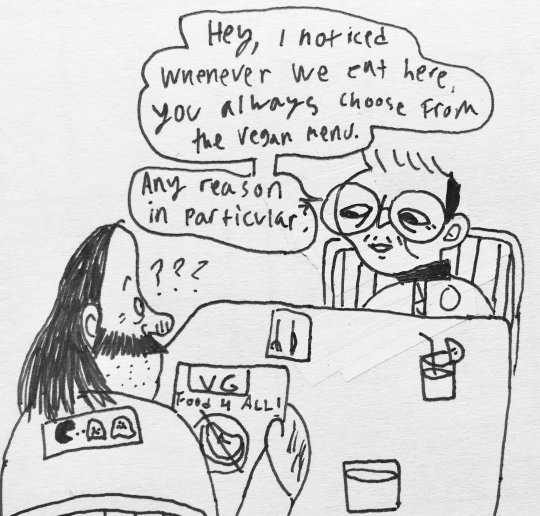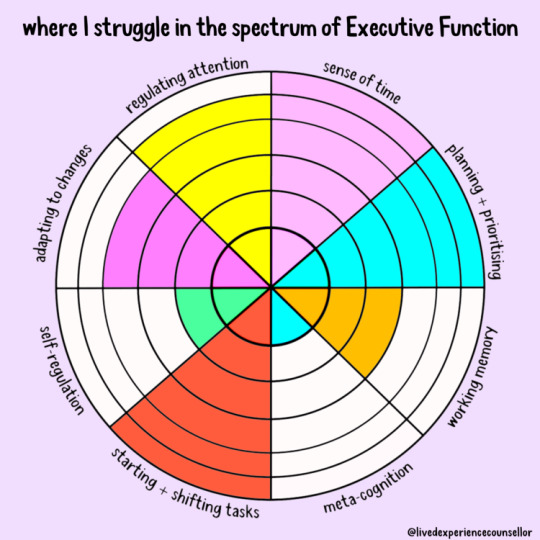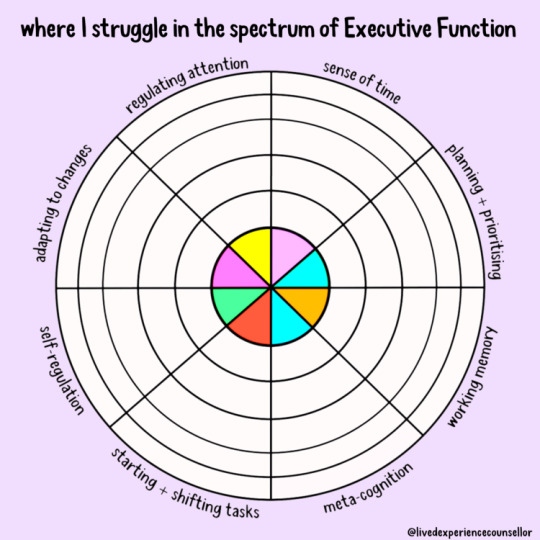Text




Have some eyes ive drawn
636 notes
·
View notes
Photo




A failure can sometimes lead to unexpected success
12K notes
·
View notes
Text
My man's thighs called awareness the way I'm. spreading them
50K notes
·
View notes
Text
girls go to jupiter to get access to the ancient ruins that lie shrouded within the gas giant's great storms, questing in search of the secret key that will open a portal to the galactic nexus from which horrors can be unleashed upon the galaxy, if they can manage pry it from the gigantic claws of the draconic terrorbeast that guards the temple's winding tunnels
6K notes
·
View notes
Text
I am very serious if a game both negatively impact your mental health and is the source of all your joy, it means you have an addiction problem and you need to delete your account and uninstall it and cry for however many hours you need to get it out of your system.
Your lifeline CANNOT depend on a mobile game they're predatory as fuck.
62K notes
·
View notes
Text
Y’all “critical thinking” does not equal “criticism”.
53K notes
·
View notes
Text
The trick to dealing with online discourse is to either avoid it entirely or to see it as a trip to the zoo where instead of animals you're looking at a menagerie of ways to be wrong
18K notes
·
View notes
Text
The Spectrum of Executive Functioning
Executive Function is a set of mental skills we use every single day to manage our daily lives from working to studying to every day stuff like cooking and paying bills.
Both autistic individuals and ADHDers experience struggles with executive function (as well as many other individuals!) but we can all have varying experiences with the different skills that come under executive function so… welcome to The spectrum of Executive Function.

[Image description: A pie chart divided into 8 sections. Clockwise from the top left: 1) regulating attention: maintaining focus on a task; 2) sense of time: an awareness of time, time management; 3) planning + prioritising: organisation, prioritising tasks, setting goals; 4) working memory: remembering the steps as you do a task; 5) meta-cognition: thinking about thoughts, problem solving, self-reflection; 6) starting + shifting tasks: ability to start and shift tasks; 7) self-regulation: regulating thoughts, feelings and responses; 8) adapting to changes: respond and adjust to changes. End ID]
Executive Function Spectrum
Regulating attention: maintaining focus on a task
Sense of time: an awareness of time, time management, predicting how long a task will take.
Planning and prioritising: organisation, prioritising tasks, setting goals.
Working memory: remembering important information or steps as you do a task.
Meta-cognition: the ability to think about your own thoughts including problem solving.
Starting and shifting tasks: ability to start tasks and switch to a new task easily.
Self-regulation: awareness and ability to regulate your thoughts, feelings and responses.
Adapting to changes: the ability to respond and adjust to changes that happen.
We might experience struggles in certain skills while having strengths in other skills. Our struggles with the different parts of executive function can also change day to day or depending on factors (like sensory overwhelm or burnout) which is why it's shown as a spectrum here!

[Image description: The same pie chart as above, with the sections filled out to various levels of severity. Sense of time, planning + prioritising, and starting + shifting tasks are all at maximum difficulty. Regulating attention is almost at maximum, adapting to changes is in the upper middle range, working memory is in the middle, self-regulation is a bit difficult, and meta-cognition is the easiest. End ID]
I filled one in myself as an autistic ADHDer and as you can see, I experience a lot of struggles with certain skills of executive function which means I need a higher level of support while I don’t need as much support with the other skills. As I have ADHD, my executive function is pretty static as in, they don’t really change much day to day. However, you can absolutely fill it in according to how you experience them day to day or how you experience them according to certain moments e.g. executive function is more challenging during sensory overload.
Want to give it a go?
You can use this visual spectrum as a self-insight tool to figure out your strengths and where you might need more support as well as a communication tool to communicate your executive function challenges or need for support to family, loved ones or even your therapist.

[Image description: The same pie chart, blank so you can fill it out yourself. End ID]
~ Sonny Jane, livedexperiencecounsellor [PDF worksheet version]
652 notes
·
View notes
Text
i like to pretend i already died and asked god to send me back to earth so i can swim in lakes again and see mountains and get my heart broken and love my friends and cry so hard in the bathroom and go grocery shopping 1,000 more times. and that i promised i would never forget the miracle of being here
167K notes
·
View notes
Text
Praying to every single God hasn’t helped me so I’m going to start praying to StarClan
1K notes
·
View notes
Text
I genuinely forgot people follow this blog. I’m so fuckign sorry you have to see this stuff. This is just what I don’t want to post on my main. Follow me there pls and thank you
@garfieldfan420 @garfieldfan420 @garfieldfan420
0 notes
Text
Hehe! *flexes your ischiocavernosus muscle, giving you an erection*
31 notes
·
View notes
Text
legitimately one of the funniest videos in earth
140K notes
·
View notes
Text
On Representation, Diversity, and “have characters of color just don’t write about the experience of being a person of color”
Alright. I’m gonna piss a bunch of people off and also confuse a bunch of well-intentioned white people because I don’t think that you can write about a character of color without talking about the experience of being a person of color of a certain culture.
Seriously. There’s so many conversations celebrating how people have narratives where it “doesn’t matter” that one of their characters is a person of color and that their characters’ identity as a person of color “doesn’t affect the storyline” or whatever.
I’m going to cut right to the chase here: as a reader and storyteller of color, I’m not a fan of narratives where race doesn’t affect the story.
My race and culture and ethnicity ABSOLUTELY impact the way I perceive the world around me! For instance, many South Asian families bond with lively debates and discussions and lovingly roasting their family members. The way that I develop positive relationships, often with a solid dose of conflict and loudness and argument, is therefore fundamentally different from the way a white person would develop relationships; in fact, many white people are intimidated by how loud South Asians like myself are. We’re dramatic and loud and love jokes with wordplay! That’s just how it is and it means I form bonds with people differently.
I also have different values. White people are often more individualistic in culture, with more weird distant formal bonds with their parents (shit like referring to their parents by first name or, on the other end of the spectrum, calling their dads “sir”???) as opposed to the more comfortable and closer bond I have with my parents, where my family is all up in my shit literally all the time LMAO.
Literally white families are SO DISTANT to the point where white people consider practices like co-sleeping with your young child, something very common in South Asian families, to be child abuse?? Like, as if keeping your baby in a crib in another room where they’re not close to you and it’s harder to hear them isn’t dangerous but apparently suffocating a child while sleeping (which is very rare especially since co-sleeping is a practice that has gone on for MILLENNIA) is the bigger threat here??
White kids might perceive that as invasive or a violation of their privacy; I don’t perceive it that way because of the way South Asian families are structured. There’s a stronger emphasis on closeness with family. Of course, there are situations of kids being estranged or difficult family relationships or child abuse in South Asian families as well, but family is more valued in my culture.
The plants I put in my garden are different because of my identity; flowers like bela (Arabian jasmine) and bougainvillea and roses and gladiolus and marigolds and such things are what I’m fond of because of biases based on what my parents and grandparents like. I even once grew nenua (a type of squash). (I’m gonna get my hands on a raat ki rani soon I hope!!) And, of course, not every South Asian is partial to these flowers, but there’s definitely a cultural aspect as to why I personally like them!
The colors and patterns I gravitate towards are also different! I’m not a big fan of western “neutrals” and I find bright colors more appealing, especially because hey, those vibrant shades look better on brown skin! And GUESS WHAT, part of why the western world gravitates towards neutral colors in formalwear is because of colonialism and a disdain for the vibrant colors and dyes that colonized countries used. I love wearing jhumka earrings and statement necklaces and bright, vibrant jewelry as well. Now, obviously, this isn’t the case with every South Asian, but there is certainly some level of impact on these choices from my culture and upbringing.
Hell, even the food I eat is different! I drink chai in the evenings. I gravitate towards spicier dishes and better seasoning. I don’t eat meat other than fish/seafood and chicken and occasionally turkey because of cultural stuff, though ofc lots of South Asians are vegetarian and on the flip side lots of South Asians DO eat red meat and stuff.
And this isn’t even universal to ALL South Asians by any means, because my parents are specifically Hindu and from northeastern India and I’ve grown up in California! And there’s so many other details I could go into but for the sake of not writing a twelve-page essay I’m stopping here.
Basically, my point is, I don’t want representation where race “doesn’t matter” to the story. Race impacts so many aspects of my life and how I perceive and interact with the world around me.
It’s ridiculous to me how so much “representation” is basically just starting with a default of a white character, making her brown, avoiding the stereotypes, and that’s….it. It doesn’t feel real. It doesn’t feel authentic to take away cultural impacts on your characters. People start with white western archetypes and tropes and try to mold them to fit characters of color, instead of starting off with an authentic character of color, and it really, really shows.
Especially because Tumblr and writeblr are such white spaces, and also because culture is usually picked up from the environment as opposed to online, the conversations centered around “representation” are always about “don’t do x stereotypes” as opposed to how to actually learn about other cultures and actually….write a character of color. So many of y’all only know how to NOT write a character of color as opposed to how to ACTUALLY write a character of color.
I see so many lists of tropes and things to not include in stories, and not enough things about values and family structures and food and fashion and ways of developing relationships and all that fun stuff that will shape who you are as a person.
And some of y’all don’t even TRY to, I dunno, engage with the culture of your character of color to actually write them. For instance, if you’re writing a South Asian character, go explore South Asian cinema! Go make South Asian friends who can tell you little details about their lives as they, y’know, exist and are your friend! In general, explore the movies and literature and music and dance types and food and drink and whatnot of the culture your character is from! Form relationships with people of those cultures; it’s the internet! I know this is a super white space but there’s PLENTY of poc on here! Make an effort, not just to avoid harmful stereotypes, but to write a character of color whose identity actually MATTERS.
When I’m reading escapist fantasy/sci-fi/romcom/etc. literature where characters aren’t being hurt by racism, I don’t want a story where RACE doesn’t exist, I want a story where RACISM doesn’t exist. I want cultural understanding, empathy, and compassion!
I don’t want a role a white character would play just switched out with a character of color.
For instance, in the movie To All the Boys I’ve Loved Before, Lara Jean’s identity as East Asian is reflected in her fashion choices; book author Jenny Han lent inspiration for this. The Yakult drinks she likes, inspired by Korean tastebuds, plays a role in the story, too. These are details that don’t necessarily heavily impact the plot; it’s a fake-dating high school romcom. But they make a more real, fleshed-out character. They’re little details, little in-jokes and references, showing that the character’s race and culture actually MATTER to the story.
There’s a part in Pacific Rim where Raleigh Beckett, a white man, is frustrated with Mako Mori, a Japanese woman, for not going against the wishes of her father figure, Pentecost. When he tells her she doesn’t have to obey him, she responds, “It’s not obedience, Mr. Beckett. It’s respect.” This depicts her cultural understanding of family and respect; her relationships and her responses to things are impacted by her culture.
This is what I’m talking about! In order to write an actual character of color, you MUST write about their experiences to a certain extent. Of course, don’t make your characters of a certain culture a monolith in terms of personalities and responses and all that, but understand how they may be similarly impacted by their identities.
Now, don’t write a whole damn novel about a character coming to terms with their racial identity and coping with racism, but you absolutely MUST holistically incorporate their identity into your narrative.
Otherwise, it’s not actually representation. It’s you essentially writing a racebent white character. It’s you using a white default and trying to adapt it to totally different experiences.
14K notes
·
View notes

